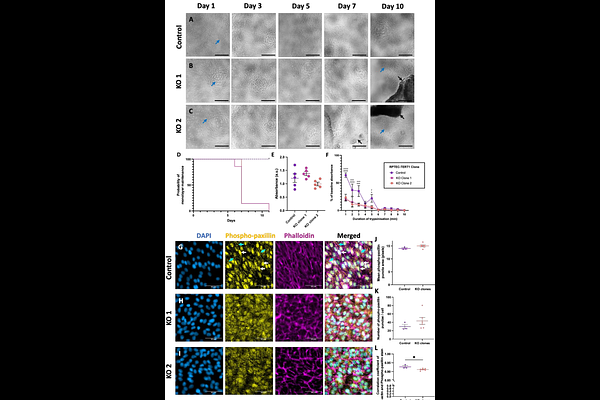Mechanobiological proximal tubular defects in ARC syndrome: A VPS33B CRISPR knockout study

Mechanobiological proximal tubular defects in ARC syndrome: A VPS33B CRISPR knockout study
Caluianu, M.; Owen, K. A.
AbstractARC syndrome (arthrogryposis-renal dysfunction-cholestasis) is a rare autosomal recessive multisystem disorder affecting the kidneys. The disease is caused by mutations in either VPS33B or VIPAS39. ARC syndrome is currently incurable, with patients rarely surviving beyond their first year of life. The renal component of this disorder is characterised by proximal tubular dysfunction. Here, a proximal tubular cell line, RPTEC-TERT1, was CRISPR-edited to knock out (KO) VPS33B expression. Characterisation of VPS33B-KO cells was performed using brightfield imaging, immunostaining, RNA sequencing, and cell detachment assays. The VPS33B-KO RPTEC-TERT1 cells demonstrated a \'peeling\' phenotype and altered cell adhesion. This, along with altered transcription of genes associated with cell adhesion, suggests that VPS33B KO results in cell-matrix attachment defects. These findings provide the first insights into the cause of proximal tubular dysfunction in ARC syndrome.